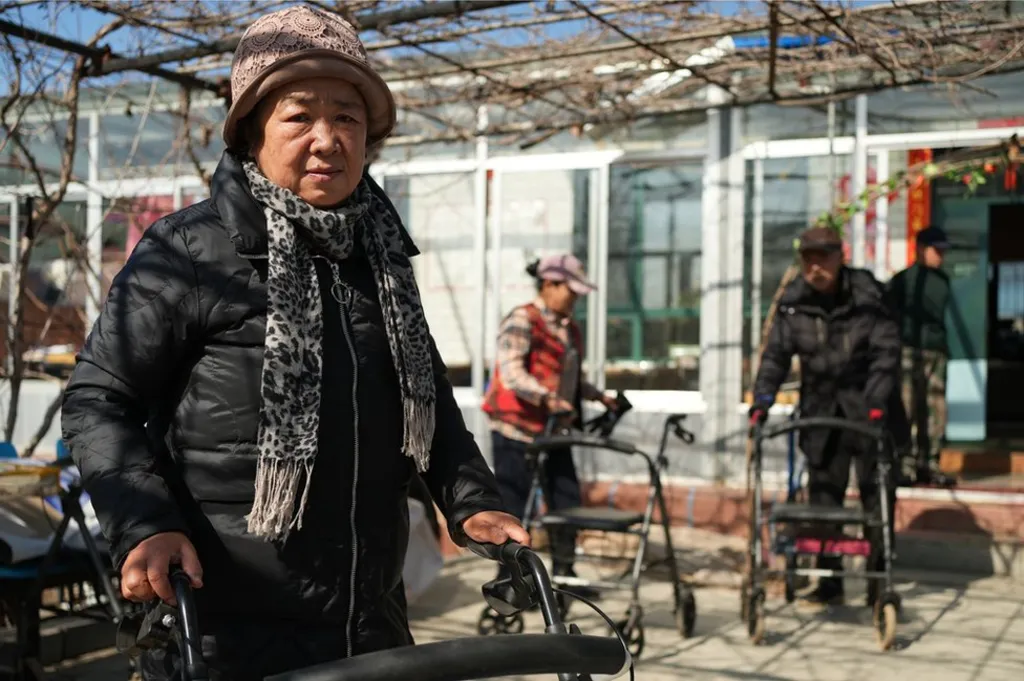In the rural stretches of northeastern China, Huanchun Cao, a 72-year-old farmer, dismisses the notion of a pension with a laugh that resonates with years of toil. His weathered hands, a testament to a life spent tilling the soil, continue to work the land — a stark portrayal of China’s burgeoning demographic crisis. As the Chinese population ages at an unprecedented rate, the world’s most populous nation is confronting a reality that could redefine its social and economic landscape.
The Grey Tide: A Portrait of Rural Resilience
Cao’s life reflects a broader narrative that resonates across rural China — a generation that grew up with the nascent Communist China but has aged faster than the country’s economic prosperity. For many like him, the absence of a robust social safety net means the twilight years are not a time of rest but of relentless labor.
As China’s economy slows and the repercussions of the one-child policy compound, the crunch on the pension pot grows more acute. An estimated 300 million people, presently aged 50 to 60, are poised to retire over the next decade, a demographic equivalent to the entire population of the United States.
Between Dependence and Dignity: Urban vs Rural Divide
The disparity between urban and rural eldercare is palpable. In Liaoning, once a flourishing industrial nucleus, the demographic skew is evident — nearly a quarter of the populace is aged 65 or older. While the youth migrate to metropolitan hubs for better prospects, the elderly remain, tethered to the lands and lifestyles of their forebears.
For Cao and his wife, subsistence is a yearly gamble, their income hinging on the fluctuating price of corn. Healthcare, a critical concern for the elderly, remains a luxury they can scarcely afford. The fear of illness looms large, with the possibility of becoming a “burden” to their children, an eventuality Cao reluctantly acknowledges.
Reinventing Retirement: Personal Endeavors to Counter the Crisis
In contrast to Cao’s austere existence, 55-year-old Guohui Tang, a former digger operator turned care home founder, exemplifies individual initiative in the face of systemic shortfalls. Her care home, nestled an hour from Shenyang, is both a business and a personal retirement plan. Here, the elderly, bereft of pensions, depend on filial contributions — a system stretched thin by the one-child policy’s lasting legacy.
Tang, herself wary of burdening her daughter, pours her hopes and resources into her eldercare facility. Yet, the stark reality is that her charges represent a fraction of China’s elderly — many of whom languish without pensions, care, or familial support.
Policy Paralysis and the Shadow of 2035
Amidst individual stories of resilience and entrepreneurship, the pension fund’s looming insolvency by 2035, as projected by the Chinese Academy of Sciences, casts a long shadow. With the pandemic’s economic shockwaves yet to subside, policy-makers face tough decisions, including potentially raising the retirement age in a nation that already has one of the lowest thresholds globally.
Economists caution that minor policy tweaks will not suffice to avert what looms as a humanitarian crisis within a generation.
Silver Lining: Innovations in Elder Care
In more affluent regions like Hangzhou, experiments in eldercare offer glimpses of hope. The Sunshine Care Home, housing over 1,300 residents, leverages the enthusiasm of young volunteers and private funding to alleviate local government debts. Here, Grandma Feng, a spirited 78-year-old, lives with her husband in a nurturing environment brimming with activities — a stark contrast to Liaoning’s frost-kissed fields.
Yet, even this seemingly successful model faces financial challenges, raising questions about the sustainability of such initiatives without broader systemic support.
Conclusion: A Crossroads of Commitment and Ingenuity
China stands at a demographic crossroads where the commitment of its government and the ingenuity of its citizens will be paramount. The divergent tales of Cao and Tang reflect the varied landscape of China’s eldercare — one rooted in enduring hardship, the other in adaptive innovation.
As China navigates its demographic winter, it must balance respect for its elders with the practicalities of a modern economy, ensuring that the twilight years are characterized by dignity and support, rather than uncertainty and neglect. The choices made today will resonate through the lives of millions, defining the legacy of a nation that can either grow old with grace or face the chilling prospects of its own longevity.

